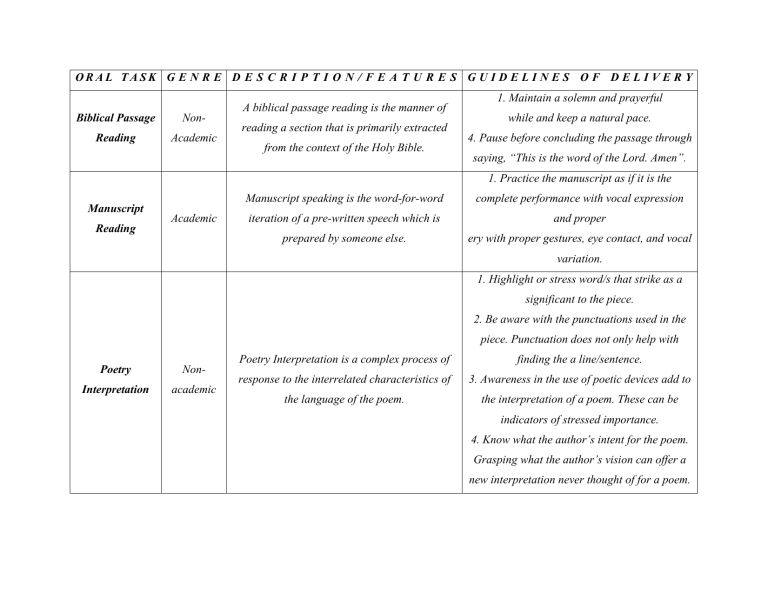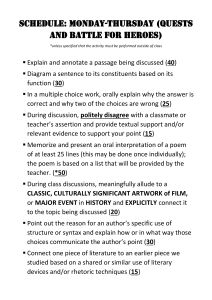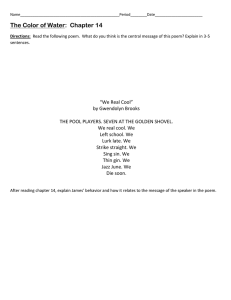
ORAL TASK G E N R E D E S C R I P T I O N / F E A T U R E S G U I D E L I N E S O F D E L I V E R Y Biblical Passage Non- Reading Academic A biblical passage reading is the manner of reading a section that is primarily extracted from the context of the Holy Bible. 1. Maintain a solemn and prayerful while and keep a natural pace. 4. Pause before concluding the passage through saying, “This is the word of the Lord. Amen”. 1. Practice the manuscript as if it is the Manuscript Reading Academic Manuscript speaking is the word-for-word complete performance with vocal expression iteration of a pre-written speech which is and proper prepared by someone else. ery with proper gestures, eye contact, and vocal variation. 1. Highlight or stress word/s that strike as a significant to the piece. 2. Be aware with the punctuations used in the piece. Punctuation does not only help with Poetry Non- Interpretation academic Poetry Interpretation is a complex process of finding the a line/sentence. response to the interrelated characteristics of 3. Awareness in the use of poetic devices add to the language of the poem. the interpretation of a poem. These can be indicators of stressed importance. 4. Know what the author’s intent for the poem. Grasping what the author’s vision can offer a new interpretation never thought of for a poem. 1. Practice correct pronunciation. Jazz Chant Non- Jazz Chant are defined poems with repeated academic beats which are delivered in a fast rhythm. 2. Memorize the piece and assign which voice to be used in in different sections of the poem. 3. Project the voices and convey the accurate interpretation of the piece. Chamber theater is a manner of presenting literary works to the stage using maximal 1. Execute movement on the stage. Chamber Non- amount of the work's original text and often 2. Exaggerate actions and voices. Theater academic minimal and suggestive settings. It includes 3. Face the actor you are addressing. narration in the performed text and the 4. Use the stage well. narrator might be played by multiple actors. 1. Read loud enough and pronounce words It is a style of theater in which the actors do not Reading Theater Non- memorize their lines instead they use vocal academic expression to help the audience understand the story rather than visual storytelling. clearly and correctly. 2. Hold the copy properly. 3. Vary the voices to be used depending on the expression. 4. Look at the audience once in a while to maintain a conversational atmosphere.



